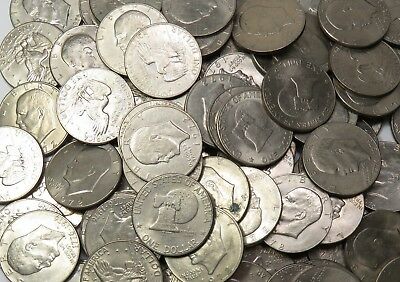Is a penny for your thoughts not enough? How about a bunch of rare coins?
More than 140 million people have tried out coin collecting. It’s a great way to learn about history, make money, and create a name for yourself.
But you can’t just throw a bunch of pennies in a bucket. You need to research rare coins and build a unique collection that no one else has.
How can you find rare coins? What kinds of coins can you collect? How can you improve the quality of your collection?
Answer these questions and you can start your incredible collection today. Here are seven tips you should follow.
1. Take a Look at Your Change
A lot of rare coins are already in circulation. Most rare coins count as legal tender, and people spend them without realizing it.
Whenever you get spare change, you should examine the coins. If they’re hard to see, use a magnifying glass and a strong light to get a good look at their features.
Keep your eye out for anomalies like missing mint marks and double faces. The more unusual the anomaly, the more valuable your rare coin is. If you get a very old coin, your coin is also likely to be valuable.
2. Ask for Coin Rolls
Your local bank may store coins in rolls. When you go to withdraw money from the bank, ask for coin rolls instead of dollar bills. Your bank may give you coins with anomalies on them or gold coins.
If you don’t get any valuable coins, you can return them to the bank and ask for cash. You can also talk to a coin expert at the bank and see if you have anything valuable. You can even ask them for advice on how to start your coin collection.
3. Buy a Metal Detector
Many people drop rare coins on the ground by accident. You can find these coins with the help of a metal detector. A basic metal detector you can find at a hobby store may cost less than $100, and it is easy and effective to use.
You can use your detector in nearly all public locations, including beaches and parks. Some historical sites prohibit metal detecting, so look at the regulations before you visit.
Keep your eyes low to the ground while you are detecting. Any metallic object can set your appliance off, and some coins may have rust that prevents your detector from recognizing them.
4. Get Books on Rare Coins
The more you know about different types of coins, the easier collecting coins can be. You can get books from your library about coin collections and rare kinds of coins.
Try to get books from experienced coin collectors. You can also get books from government organizations, especially about coins like America the Beautiful quarters.
Older books can give you information about coins that modern books cannot give you. You may be able to find them in thrift stores, yard sales, or websites like eBay.
5. Specialize in One Type of Coin
Knowing about many types of coins can help you spot rare coins when you see them. However, if you want your coin collection to stand out, you should focus on one particular category of coins.
Gold coins are one type you can focus on. Yet there are a few types of gold coins, such as Australian Kangaroo Gold Coins. Find more information here about these coins and see if they are desirable for your collection.
You can find gold coins in the soil, especially near old travel routes. Do research on your area and try to see if any travel routes ran near your house.
Silver coins are easier to find. Some coin rolls contain them, and some stores give them out as change.
Doubled die coins are coins that have two images on one side. The date of the coin may be printed twice, or there may be two faces of the same person on your coin. These coins are easy to spot, so you can make a collection out of them in little time.
6. Make Trades
If you get a gold coin when you need a silver one, you should not throw it away. You should keep it and trade it with another collector for a silver one.
Many coin collectors run clubs or guilds where members can meet together and make trades. See if there is a club in your area you can visit. Some collectors have websites with contact forms, and you can request a trade with one of them through their form.
7. Store Your Coins Well
Your coins should stay in a cool location where rust cannot grow on them. If you live in a humid area, you can store your coins in folders and binders.
You can put your coins inside a safe, especially if they are valuable. But make sure you can open the safe and check on the coins to see if they need any maintenance.
If your coins have dirt on them, you can clean them using a mixture of dish soap and hot water. Be very careful so you don’t damage the coins. You can use a toothbrush or a paper towel to rub the coins, but don’t apply too much pressure.
Get Started On Your Collection of Rare Coins
Rare coins are worth more than a few cents. You can find rare coins in loose change, coin rolls, and on the beach. Feel free to get tools like metal detectors and coin books so you can spot them right away.
Focus your collection on one type of coin such as gold coins. When you get coins you don’t want, trade them for ones you do like. Keep your coins cool and dry, and clean them only when you are very careful.
The world of coins is waiting for you. Read more rare coin guides by following our coverage.
